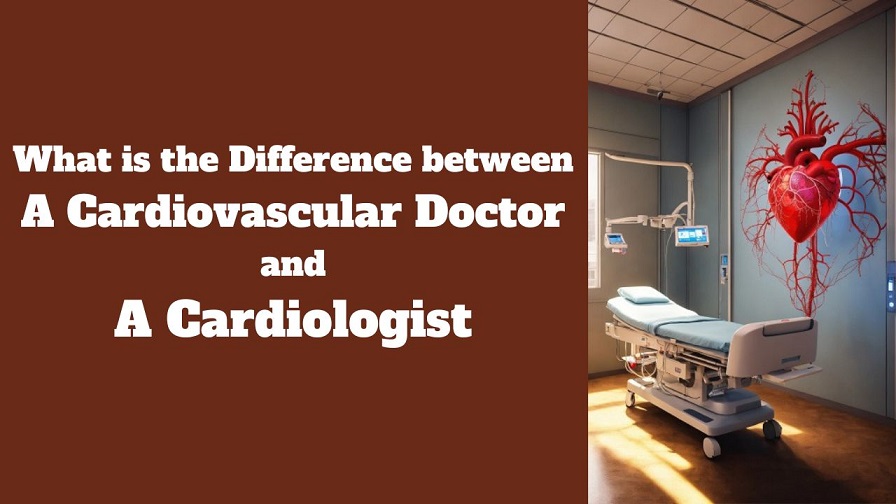What is the Difference between a Cardiovascular Doctor and a Cardiologist?
Cardiologists and cardiovascular doctors focus on diagnosing and treating conditions related to the heart and circulatory system. However, there are some critical distinctions in their training backgrounds and the types of patients they serve.
What is a Cardiologist?
A cardiologist is a medical doctor who specializes in diseases and conditions specifically involving the cardiovascular system. This includes disorders of the heart, heart valves, coronary arteries, veins, aorta, and peripheral blood vessels.
To become a cardiologist, a physician must first complete:
- Four years of undergraduate college
- Four years of medical school earning an MD
- Three-year residency training in internal medicine
- Three-year cardiology specialty fellowship
This intensive decade of education enables cardiologists to provide detailed assessment and expert management of cardiovascular disorders. They serve both outpatient and hospitalized individuals ranging from pediatric to elderly patients.
Cardiologists rely on diagnostic tests to evaluate signs and symptoms reported by patients in addition to physical exam findings. These tests allow them to assess the anatomy, blood flow, and electrical conduction through the heart, helping facilitate accurate diagnoses.
Cardiologists also prescribe medications and other treatments to improve current cardiovascular status and prevent future complications.
What is a Cardiovascular Doctor?
The term “cardiovascular doctor” is sometimes used interchangeably with cardiologist but more broadly encompasses physicians practicing cardiology without specialized training. This includes:
Primary Care Physicians
Family medicine doctors, general internists, and general practitioners all provide essential cardiovascular care services as part of routine primary care.
They screen for risk factors like high cholesterol and high blood pressure and initiate management with lifestyle changes and medications when indicated. Primary providers refer patients to cardiologists for complex diagnoses, advanced testing, and procedures.
Cardiovascular/Cardiothoracic Surgeons
These physicians undergo general surgery training with further sub-specialization in operative procedures involving the heart, arteries, veins, valves, and associated structures.
Cardiovascular surgeons operate on patients suffering from conditions like coronary artery blockages, leaky or narrowed heart valves, congestive heart failure, congenital disabilities, and trauma. The surgical care they provide is often complementary to the medical management of cardiologists.
Vascular Medicine Specialists
Vascular medicine physicians receive dedicated training in blood vessel disorders not involving the heart, like peripheral, carotid, renal, and cerebrovascular artery disease. They have expertise in the medical, minimally invasive, surgical, and interventional treatments for circulatory problems exclusive to veins and arteries.
Critical Differences Between Cardiologists and Cardiovascular Doctors
While the clinical work of all cardiovascular doctors intersects in some capacity, there are a few vital differences between cardiologists and the other physicians working within this medical domain:
Education focus – only cardiologists complete specialized fellowship training targeted expressly at cardiovascular disease following internal medicine residency.
Patient scope – cardiologists solely provide care to patients with diseases of the cardiovascular system, including the heart, blood vessels, arteries, and veins. Primary doctors manage whole-body health.
Testing: Cardiologists utilize advanced diagnostics like electrocardiography, stress testing, echocardiography, cardiac catheterization, and electrophysiology studies, which are unavailable to most primary care providers without referral.
Procedures – interventional cardiologists have the skills and expertise to perform minimally invasive catheter-based cardiovascular procedures that most cardiovascular physicians lack. Surgeons specialize in operative techniques.
Medication expertise – cardiologists have intimate knowledge of cardiac medications and experience fine-tuning multi-drug regimens, which primary doctors more broadly prescribe.
Should You See a Cardiologist or Cardiovascular Doctor?
Generally, primary doctors and specialists co-manage patient cardiovascular care with referrals for elevated risk factors or symptoms concerning heart disease. As first-line providers, primary physicians provide general preventative treatment. Cardiologists offer targeted diagnosis and disease management when heart issues are suspected or definitively diagnosed.
Seeing a cardiologist is advisable for patients experiencing potential heart-related symptoms like chest pain, palpitations, or shortness of breath, in addition to those wanting specialized care for existing conditions like arrhythmias, heart failure, or valve abnormalities.
Cardiovascular surgeons provide surgical options once heart disease progresses beyond the best medical treatment, while vascular specialists uniquely evaluate blood vessel-specific circulation disorders.
With extensive education and skills focused on the cardiovascular system’s intricate workings, cardiologists are uniquely equipped to accurately assess, diagnose, treat, and monitor even the most complex heart and circulatory conditions to optimize patient outcomes.
Thank you for visiting Jobs Ada







